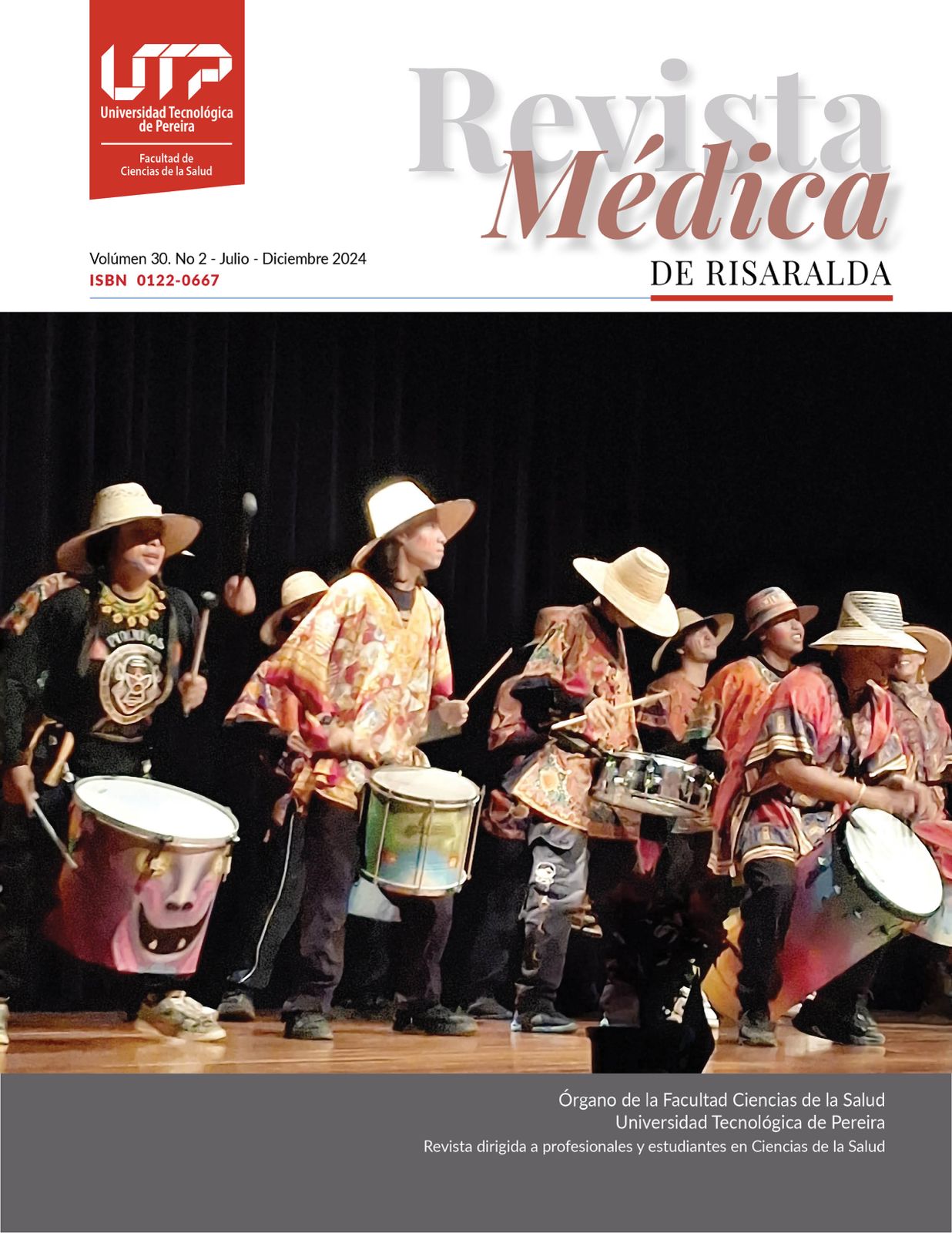Why incident and not accident or incident in the field of public health and road safety in Colombia?
DOI:
https://doi.org/10.22517/25395203.25615Keywords:
public health, accident prevention, incidence, traffic accidentsAbstract
The aim of this paper is to reflect on the semantic differences and how we refer to events resulting from road safety in the field of public health and road safety in Colombia. We constantly use the terms accident, accident and incident as synonyms to refer to events resulting from road safety, ignoring their true meaning. The indiscriminate use of these terms leads to a misinterpretation of the phenomenon under analysis. This error persists despite international advances that since the 1990s have recognized the preventable and avoidable nature of these events, the adherence of specialized public health media indicating that the term accident is erroneous, and the subsequent alert by international organizations on the erroneous use of the word accident, ratified at ministerial summits, laid the foundations for the analysis and interpretation of the phenomenon. Unfortunately, in the case of Colombia, the Congress of the Republic of Colombia coined the term accident in Law 769/2002, from which the law is interpreted, and offenders are sanctioned, which not only reflects a lack of alignment with international advances in public health and road safety but also perpetuates the misinterpretation that could affect the effectiveness of public policies. In conclusion, the understanding of terminology related to road events has been significant, highlighting the preventable nature of these events. However, indiscriminate use of terms persists in Colombia, ignoring conceptual evolution and perpetuating the use of misleading terms, especially ‘accident’, conceived from current legislation.
Downloads
References
Oxford Learners Dictionaries. Accident. [Internet] 2024 [Consultado 2024 Mar 16] Disponible en: https://www.oxfordlearnersdictionaries.com/us/definition/english/accident?q=accident
Real Academia Española. Diccionario de la lengua española. Accidente. [Internet] 2024. [Consultado 2024 Feb 16] Disponible en: https://dle.rae.es/accidente
Ruiz M. ¿Se debe usar el término accidente en el ámbito de la investigación científica? Panace.2011; 12(33), 84-88.
Tabasso C. Paradigmas, teorías y modelos de la seguridad y la inseguridad vial. [Internet] 2024. [Consultado 2024 Feb 8] Disponible en: http://www.palomequetabasso.com.uy/wp-content/uploads/2014/08/Paradigmas-teorias-y-modelos.pdf
Davis R, Pless B. BMJ bans “accidents”. Accidents are not unpredictable. BMJ.2001;322(7298): 1320-1321.
Government Offices of Sweden. World Health Organization. 3rd Global Ministerial Conference on Road Safety. [Internet] 2024 [Consultado 2024 Ene 25]. Disponible en: https://www.roadsafetysweden.com
Federación de Aseguradores Colombianos. El 48% del parque automotor en Colombia no tiene SOAT. [Internet] 2024 [Consultado 2024 Ene 25]. Disponible en: https://www.fasecolda.com/sala-de-prensa/fasecolda-en-linea/noticias/noticias-2021/marzo/el-48-del-parque-automotor-en-colombia-no-tiene-soat/
Real Academia Española. Diccionario de la lengua española. Siniestro [Internet] 2024 [Consultado 2024 Ene 28] Disponible https://dle.rae.es/siniestro?m=form
Allianz. ¿Qué es un siniestro? [Internet]2023 [Consultado 2023 Dic 15]. Disponible en: https://www.allianz.es/descubre-allianz/mediadores/diccionario-de-seguros/s/que-es-un-siniestro.html
Real Academia Española. Diccionario de la lengua española. Incidencia. [Internet] 2024 [Consultado 2024 Ene 25]. Disponible en: https://dle.rae.es/incidencia
Universidad de Salamanca. Diccionario médico-biológico, histórico y etimológico: Incidencia. [Internet] 2024 [Consultado 2024 Ene 25]. Disponible en: https://dicciomed.usal.es/palabra/incidencia
Isaza P. Glosario de Epidemiología. Colombia: Academia Nacional de Medicina de Colombia; 2015.
Organización Panamericana de la Salud. Indicadores de salud. Aspectos conceptuales y operativos. [Internet] 2024 [Consultado 2023 Dic 10]. Disponible en: https://www.paho.org/hq/index.php?option=com_content&view=article&id=14402:health-indicators-conceptual-and-operational-considerations-section-2&Itemid=0&lang=es
Last JM. A Dictionary of Epidemiology. 4 ed. New York, NY: Oxford University Press; 2001.
Rothman K, Greenland S, Lash T. Modern Epidemiology. 3ª ed. Philadelphia, PA: Lippincott Williams & Wilkins; 2008.
Marroquín L, Grisales H. Muertes por incidentes viales en Antioquia 2012-2016. Rev. Fac. Nal. Salud Pública. 2019;37(3):86-97. doi: 10.17533/udea.rfnsp.v37n3a10
Salazar E, Tonguino S, Cabrera G. Epidemiología y factores asociados en personas con discapacidad de origen vial en Medellín 2004-2017. Salud UIS. 2022; 54: e22033. doi: https://doi.org/10.18273/saluduis.54.e:22033
Bonilla J, Gutiérrez M. Injuries are not accidents: The impact of terminology in public health. Colomb Med. 2014; 45(3): 132-135.
Salazar Henao EA. Años potenciales de vida perdidos y análisis espacial de incidentes viales en peatones de Medellín 2015-2020. Rev. Médica Risaralda [Internet]. 24 de noviembre de 2021 [citado 5 de agosto de 2024];27(2). Disponible en: https://revistas.utp.edu.co/index.php/revistamedica/article/view/24908
Congreso de la República de Colombia. Ley 769 del 2002 por la cual se expide el código nacional de tránsito terrestre y se dictan otras disposiciones. [Internet] 2002 [citado 5 de agosto de 2024]. Disponible en: https://www.funcionpublica.gov.co/eva/gestornormativo/norma.php?i=5557
Espinosa A, Cabrera G, Velásquez N. Epidemiología de incidentes viales en Medellín, Colombia, 2010-2015. Rev. Fac. Nac. Salud Pública. 2017; 35(1):7-15. doi:10.17533/udea.rfnsp.v35n1a02
Downloads
-
Vistas(Views): 1216
- PDF (Español (España)) Descargas(Downloads): 982
- PDF Descargas(Downloads): 137
Published
How to Cite
Issue
Section
License
Cesión de derechos y tratamiento de datos
La aceptación de un artículo para su publicación en la Revista Médica de Risaralda implica la cesión de los derechos de impresión y reproducción, por cualquier forma y medio, del autor a favor de Facultad de Ciencias de la Salud de la Universidad Tecnológica de Pereira. 1995-2018. Todos los derechos reservados ®
por parte de los autores para obtener el permiso de reproducción de sus contribuciones. La reproducción total o parcial de los trabajos aparecidos en la Revista Médica de Risaralda, debe hacerse citando la procedencia, en caso contrario, se viola los derechos reservados.
Asimismo, se entiende que los conceptos y opiniones expresados en cada trabajo son de la exclusiva responsabilidad del autor, sin responsabilizarse ni solidarizarse, necesariamente, ni la redacción, ni la editorial.
Es responsabilidad de los autores poder proporcionar a los lectores interesados copias de los datos en bruto, manuales de procedimiento, puntuaciones y, en general, material experimental relevante.
Asimismo, la Dirección de la revista garantiza el adecuado tratamiento de los datos de carácter personal



